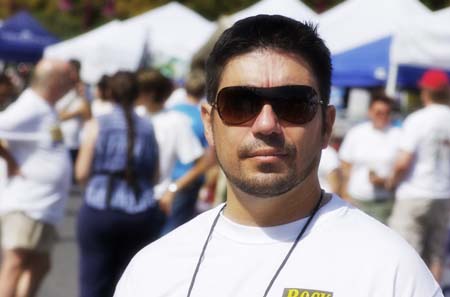Edward J. Bernard, AIDSmap News
The largest-ever survey to assess the health promotion information that gay men who use the internet to meet sexual partners in the United States would like to see has found that sexually explicit materials are not only acceptable across a diverse range of demographics but are preferred to non-visual, non-explicit and technical communication when describing HIV risk between men.
The survey, recently published online in the journal, AIDS and Behavior, targeted more than 2,700 users of the US gay social networking site, gay.com, and also found that gay men also wanted information covering much broader topics than HIV prevention, encompassing diverse sexual and mental health concerns.
Even though a significant number of gay men are now using the internet to meet sexual partners, the concept of using internet-based approaches to HIV prevention with gay men is relatively new, and, accordingly there is little evidence-based information on which to base these interventions. (See this news report from the 2006 International AIDS Conference in Toronto for a discussion of the various types of interventions that currently exist).
To rectify this, investigators from Pennsylvania State University and the University of Minnesota conducted an online needs assessment over three months in 2005 to help answer four questions:
**To what degree should internet-based HIV prevention interventions include sexually explicit materials?
**What content areas are of most interest?
**Do different groups of men who use the internet to look for sex with men differ significantly on issues of acceptability of sexual explicitness and content priorities?
**What sources of information are most credible and desired?
A total of 2,716 gay men completed the survey after they had clicked on a banner advert on gay.com. To be eligible, participants agreed that they were male, over 18, resident in the US, and had sex with men. Participants were paid $10 on completion; this rose to $20 in the third month in order to speed recruitment.
The participants were racially and ethnically diverse, with approximately three-quarters identifying as non-white: 25.1% were Latino; 18.9% Asian-American; and 16.4% African-American.
A high proportion (42.7%) were aged 18-24, but older men were also included: 26.7% were aged 30-39, and 11.8% were aged over 40. Almost all had at least a high school education, and 29% were still higher education students.
Of the 2,322 men who answered the question, 20% admitted to more than one act of unprotected anal intercourse (UAI) in the previous six months. However, the vast majority (95.6%) of all of the survey respondents reported being HIV-negative.
3/23/09
Gay men want sexually explicit internet-based health promotion information, US study finds
Subscribe to:
Post Comments (Atom)



































No comments:
Post a Comment